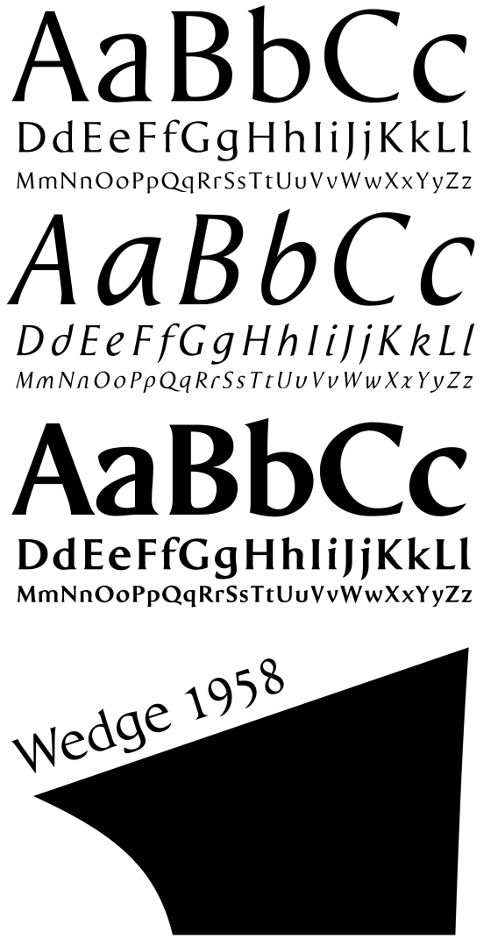The Devil’s Artisan
‘Though an angel should write, / still ’tis devils must print.’
— Thomas Moore (1779–1852)
P22 TYPE SPECIMENS
BY RICHARD KEGLER
Wedge
Noted New Zealand architect Bruce Rotherham (1926–2004) was inspired by Herbert Bayer’s ‘universal alphabet’ created at the Bauhaus in 1927. While he admired Bayer’s pure geometry, Rotherham felt it was ‘virtually unreadable’. The Bauhaus-inspired inclination for architectural publications to use sans serif faces provoked Rotherham to consider how a readable Roman book face might be approached using some of Bayer’s same principles of simplification, but also retracing the evolution and use of the Roman form in an analytic manner.
The Wedge alphabet was started in 1947 when Rotherham was an architecture student at the University of Auckland. In 1958, after years of development and consultation with his father, who was a master printer, Rotherham approached Monotype to consider producing his typeface for commercial release. After some back and forth with Monotype advertising manager A.D.B. Jones and typographical advisor John Dreyfus, and despite trial proofs being made, the design was politely declined for being too much of a ‘specialist face’.
Rotherham continued to practise architecture in New Zealand and Great Britain for over thirty years. By chance, he heard the BBC radio show Science Now discussing the topic of computer typesetting. Not content to give up on Wedge, he contacted the item’s producer, Adrian Pickering, at the University of Southampton School of Electronics and Computer Science. Pickering worked in collaboration with Rotherham in the production of the digital version. The type was shown posthumously for Rotherham in the 2009 exhibit Printing Types: New Zealand Type Design since 1870, held at Objectspace in Auckland.
Wedge is mentioned on the Internet, but has remained elusive. Over sixty years after it was first conceived, Wedge will be released by P22 in 2014 along with Rotherham’s complete documentation on the font’s development and rationale.
You can download a modern interpretation of this font. Purchase Wedge at P22 Type Foundry.

The Devil's Artisan would like to acknowledge the generous financial support of the Canada Council for the Arts and the Ontario Arts Council.